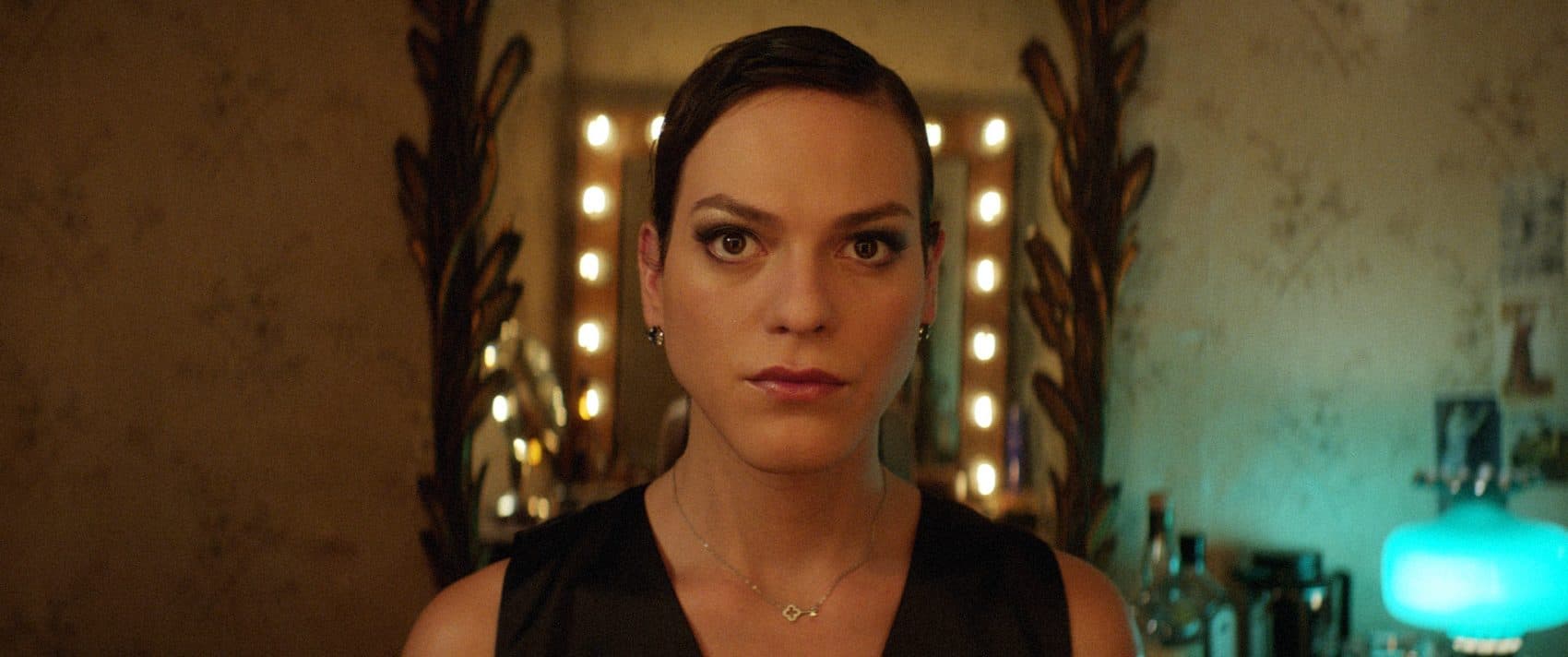Advertisement
Review
'A Fantastic Woman' Handles Trans Identity With Compassion, But Relentlessly Relies On Suffering

The favorite to win this year’s Academy Award for Best Foreign Language Film, “A Fantastic Woman” tackles the timely subject of transgender identity with compassion and sensitivity.
Each year, Hollywood seeks to present its best image to the world during the Oscars, and here’s the kind of picture everyone can feel good about getting behind.
Co-written and directed by the up-and-coming Chilean filmmaker Sebastián Lelio --whose 2014 breakthrough hit “Gloria” wowed crowds at Boston area arthouses for weeks on end back — this is a strikingly well-acted portrait of a character most movies would confine to the margins. It’s also pretty stiff and a chore to sit through.
Transgender opera singer Daniela Vega stars as Marina, a Santiago nightclub chanteuse in the process of moving in with her dashing, much older lover, Orlando (played by Francisco Reyes.) He’s recently extricated himself from a messy divorce, and what little we see of this new relationship is tender and sweetly romantic. Alas, late one night Orlando drops dead from an aneurysm, leaving Marina devastated and alone.
From her first interview with a disgusted police officer who rudely insists on calling her “Daniel” (the name on her driver’s license), Lelio’s film establishes its MO. Lelio holds on Vega’s achingly stoic face while subjecting Marina to a stream of bigotry ranging from the everyday insensitive to the shockingly vulgar, alongside a collection of crushing indignities.
One cop suspects she might have knocked off the old man, while another thinks he might have been abusing her. Meanwhile, Orlando’s former family wants Marina nowhere near his funeral, his ex-wife horribly embarrassed by what she calls his “perversion.” They also want his car, apartment and all his possessions back. Hell, they even take the dog.

Marina is the kind of role that, up until recently, cisgendered stars like Jared Leto won Academy Awards for playing while we all applauded their “bravery” for putting on a dress at work. Indeed, Daniela Vega wasn’t even originally considered for the part, but rather was working as a consultant on the screenplay with Lelio and co-writer Gonzalo Maza when the filmmakers realized what they had in front of them. She’s a magnificent camera subject, with a sharply angular face offsetting eyes that convey tremendous depths of pain.
In fact, Vega is so very good, it’s impossible to watch “A Fantastic Woman” without wishing she’d been given more to do here than just suffer. Marina wanders through the movie numbed with grief and absorbing abuse, which is compelling on a human level but dramatically monotonous. There aren’t exactly a lot of surprises here.
This gets tricky because I personally know a lot of people who could benefit from watching this film, and hopefully see their own ignorance reflected in the boorish behavior of the supporting cast. But then I doubt those folks would ever go to an arthouse to watch some fancy subtitled movie in the first place. So sophisticated audiences are left to cluck their tongues at the appalling attitudes of these awful characters and applaud Marina’s noble, silent resilience. I guess this can be cathartic for some viewers, but to me, it felt too tidy and one-dimensional.

I couldn’t help thinking throughout of “The Florida Project” director Sean Baker’s crassly hilarious Christmas Eve comedy “Tangerine,” which captured the tribulations of two transgender sex workers with rude humor and a bawdy wit. Here was a movie that contained at least as much suffering as “A Fantastic Woman” (probably a lot more) but celebrated the indomitable spirt of its protagonists instead of embalming them in decency.
Rather, the movie this reminded me most of was Jonathan Demme’s extremely well-intentioned and awfully clumsy “Philadelphia.” Nobody talks about that film much anymore, as our culture has (for the most part) moved beyond the ugly AIDS paranoia that drove the drama, and there wasn’t much of a movie there beyond the issues and inevitable awards speeches. The best I can hope for my trans friends is that “A Fantastic Woman” will soon seem just as obsolete.
